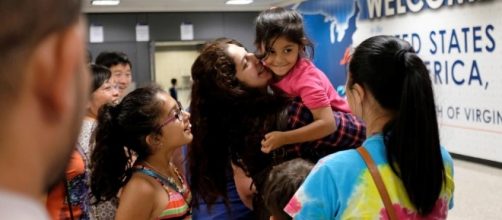On Wednesday, the Supreme Court upheld a lower court’s decision that will temporarily exempt grandparents, grandchildren, aunts, uncles, nieces, nephews, cousins, brothers-in-law and sisters-in-law from President Trump’s travel ban. However, The Supreme Court is also allowing the government to implement greater restrictions on refugees for the time being.
Who was covered by the original ruling?
This ruling comes after the Court’s June 26 decision stating that the travel ban could not apply to anyone with a "bona fide connection" to a person in the United States.
The government took this ruling and created guidelines that would cover people with a fiance, spouse, parent, child, sibling, daughter-in-law or son-in-law in the United States.
Justices Clarence Thomas, Samuel Alito Jr., and Neil Gorsuch stated that they would have allowed the travel ban to remain in effect despite the fact that it excluded grandparents, grandchildren, and other family members. However, allowing the travel ban to remain in effect as the June 26 ruling stipulated may have kept the Supreme Court from permitting the government to tighten restrictions on refugees, some opponents of the ban argue.
The lower court's ruling
Challengers of the ban went to U.S. District Judge Derrick Watson of Hawaii, who ruled last week that the government’s list of family members that counted as having a “bona fide connection” to a person in the United States was too narrow.
Thus, Watson argued, the government’s guidelines were not a proper implementation of the Supreme Court’s June 26 ruling.
Watson’s ruling went on to state that grandparents are the “epitome of close family members” and could not reasonably be excluded from the government’s guidelines. He went on to say that refugees who had been promised aid by resettlement agencies should be exempt from the ban as well, but the Supreme Court did not address this part of Watson’s decision.
Some feel that by upholding Watson’s ruling, the Supreme Court is emptying its own June 26 ruling of meaning. Jeffrey Wall, Acting Solicitor General, argued that the new ruling includes "not just 'close' family members, but virtually all family members," making the June 26 ruling arbitrary.
The Washington Post reports that eighty-five percent of awaiting refugees are still covered by the ban. Watson claims that the refugees who were to receive aid from resettlement agencies had been thoroughly vetted.


